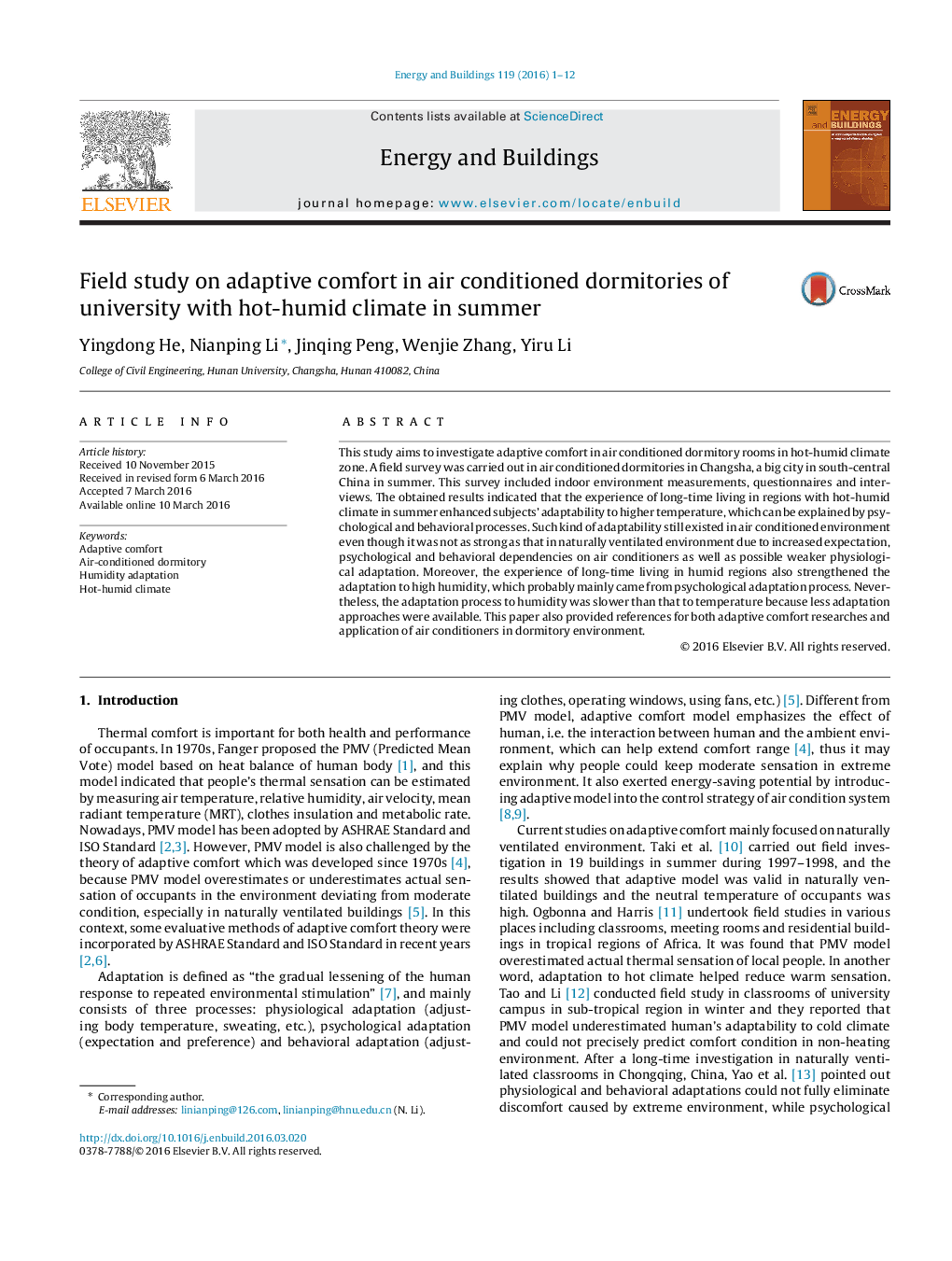| Article ID | Journal | Published Year | Pages | File Type |
|---|---|---|---|---|
| 262198 | Energy and Buildings | 2016 | 12 Pages |
•People in air-conditioned rooms exerted adaptability to hot-humid climate.•Long-time living in hot-humid regions enhanced occupants’ adaptation.•Adaptability to high temperature was weaker in air-conditioned environment.•Adaptation to humidity was slower than that to temperature.
This study aims to investigate adaptive comfort in air conditioned dormitory rooms in hot-humid climate zone. A field survey was carried out in air conditioned dormitories in Changsha, a big city in south-central China in summer. This survey included indoor environment measurements, questionnaires and interviews. The obtained results indicated that the experience of long-time living in regions with hot-humid climate in summer enhanced subjects’ adaptability to higher temperature, which can be explained by psychological and behavioral processes. Such kind of adaptability still existed in air conditioned environment even though it was not as strong as that in naturally ventilated environment due to increased expectation, psychological and behavioral dependencies on air conditioners as well as possible weaker physiological adaptation. Moreover, the experience of long-time living in humid regions also strengthened the adaptation to high humidity, which probably mainly came from psychological adaptation process. Nevertheless, the adaptation process to humidity was slower than that to temperature because less adaptation approaches were available. This paper also provided references for both adaptive comfort researches and application of air conditioners in dormitory environment.
